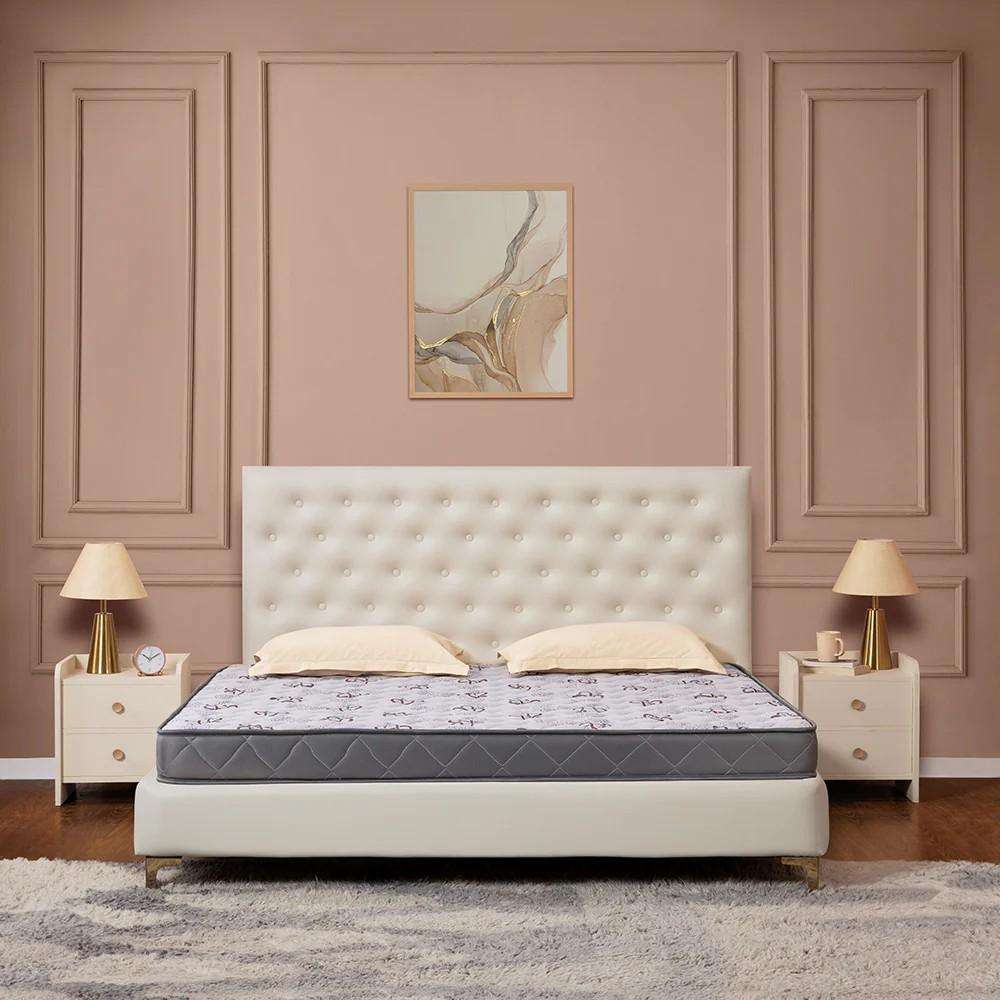Ever had that moment when you wake up in the morning feeling more tired than before you went to bed? A stiffness in your back, aching knees, or a dull pain in your shoulders that just won’t go away? That’s your body saying, “Hey, this mattress isn’t helping me!” Joint pain doesn’t always need age as a reason. These days, with long hours of sitting, very little physical activity, and health issues like arthritis or poor posture, even younger people are waking up with discomfort.
What you sleep on plays a big role in how your body feels in the morning. A good mattress doesn’t just help you sleep better—it helps you wake up feeling fresher, lighter, and pain-free.
How Joint Pain Impacts Your Sleep
Pain and sleep don’t go well together. When your joints are sore, finding a comfortable sleeping position becomes difficult. You twist and turn, trying to reduce the pressure, which means interrupted sleep. And when sleep breaks often, your body doesn’t get enough time to heal or rest properly. It’s a cycle. Joint pain disturbs sleep, and poor sleep worsens joint pain. That’s why the right mattress is a game-changer.
What Should You Look For in a Mattress to Avoid Joint Pain?
Not every mattress is built to support painful joints. Here are a few features to keep an eye on:
- Pressure Ease
Pick a mattress that gently cushions your hips, shoulders, and lower back by spreading out your weight evenly. It should reduce the tension in these sensitive areas, giving the feeling that you're resting on a soft ball of cotton. That kind of gentle support can ease pressure and make you feel light.
- Proper Support
Spinal alignment is key. A mattress that supports your spine naturally—not letting it sink too much—can reduce joint pain. If your back stays in its natural shape while you sleep, your joints get the rest they deserve.
- Balanced Firmness
Some people believe that only hard mattresses are good for pain. But too firm or too soft can both be a problem. The ideal mattress should feel just right—strong enough to hold you, soft enough to relax you. Think cushiony, but not saggy.
- Contouring Ability
Your mattress should hug your body at the right places—especially around the shoulders, hips, and knees. This helps reduce pain points. And if you toss and turn, the mattress should quickly adjust to your movement, keeping you supported all night long.
Some Mattresses That Can Help You Sleep Comfortably
One brand that’s often suggested when it comes to joint and body pain relief is Kurlon. Their range of mattresses is designed for different needs, including mattresses for backaches, back pain foam mattresses, and comfortable sleeping position seekers. Here are a few options to consider:


If your spine needs extra care, this one might be for you. It offers a medium-firm feel, a 7-year warranty, and a box-top design for added comfort. With STR8 Anti-Sagging Technology, it ensures the mattress stays supportive even after years of use. The top layer of memory foam gives your back and joints the cushion they need.
Orthopedic Roll Pack Foam Mattress
This mattress has non-static fabric to reduce irritation and memory foam that fits your body’s curves naturally. It keeps you comfortable and supported, making sleep more relaxing. Perfect for those who struggle with movement at night or static discomfort.
This one’s designed with a quilted memory foam top. It molds to your shape when you lie down and bounces back when you get up. So you get both immediate comfort and long-term durability. Ideal for those looking for a mattressfor body pain relief and a fresh start every morning.
Why Is Memory Foam So Popular for Joint Pain?
Simple—it adapts to your body. Memory foam softens when it senses body heat and pressure, which means it molds to your exact shape. This helps reduce pressure on joints and keeps your spine aligned. That’s why it's often recommended as a memory foam mattress for back pain and body aches.
Final Thoughts
Your mattress should help you sleep—not add to your discomfort. With the right choice, you can reduce pain, improve your sleep quality, and wake up feeling better. Whether it’s back pain, hip pain, or general body soreness, there’s always a mattress out there that fits your needs. You just need to know what to look for.
FAQs
Q. Which type of mattress is best for back pain?
A. A medium-firm memory foam mattress is a great option. It supports your spine and reduces pressure on joints. Look for ones that contour well and don’t sag.
Q. Which type of mattress is best for body pain?
A. Choose a mattress that offers both pressure relief and support. Memory foam and orthopedic mattresses usually help because they balance firmness with softness, helping your body relax.



